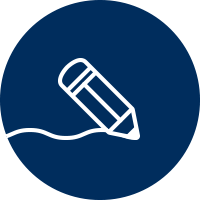Introduction
For over a millennia, people have healed with herbal or animal-derived remedies, using knowledge handed down through generations. In Africa, Asia, Latin America and the Middle East, 70-95 per cent of the population still use traditional medicine (TM) for primary healthcare. And some 100 million people are believed to use traditional, complementary or herbal medicine in the European Union (EU) alone — as high as 90 per cent of the population in some countries. (Source: World Health Organisation magazine, 2011)
The WHO (World Health Organization) estimates that 80% of the world’s population uses herbal medicine. Research has shown that over 40% of plants comprise key ingredients which can be used for prescription drugs, and researchers look to traditional medicine as a guide to help them.
There are as many as one hundred and twenty compounds which have been taken from the higher plants, and 80 percent of those which are used in modern medicine have a positive connection between their modern and traditional usage.
Natural Medicine or also known as Herbal or Alternative Medicine is a science with generations of experience but with very few specialists in the world qualified to practice or teach this science. You can find many ancient manuscripts in libraries, museums and educational institutes around the world but again only a few that can actually decipher the lost herbal language within then. Alberonius is offering a once in a lifetime opportunity for students to enrol onto Alberonius' Herbal Medical Program.
Students will be learning under qualified Herbalists, some with over 30 years of experience. The program includes the study of ancient manuscripts, dating back over 800 years old. The course encompasses classical, theoretical knowledge and traditional, practical methods, which will be taught in a modern way. Graduates from this 3 year program will have mastered the ability to diagnose illnesses and the ability to make herbal remedies, unlocking the historical secrets of Islamic and Greek Herbal Medicine.
What is Herbal Medicine?
Herbal Medicine (also known as: Herbology, Herbalism, Natural or Alternative Medicine), is said to predate recorded human history, is the name given to the use of herbs and natural substances (eg: plants, shrubs, herbs, fruits, minerals etc) to support the body in achieving and maintaining a healthy state. There is a theoretical basis found in Islamic Herbal Medicine, which is said to follow on the principles of medicine found in Greek Medicine. This is what Herbalists class as the "Nathari" side of Herbal Medicine.
This medicine is based upon the notion of temperaments and specific humours that exist in the body, with the general aim being o correct bodily temperaments in order to maintain a healthy state of being. However there were many additions and improvements in terms of methodology and practice in the Islamic era which add to the potency and affectivity of this medicine.
Al Dinawari described more than 637 plant drugs in the 9th century, and Ibn al-Baitar described more than 1,400 different plants, foods and drugs, over 300 of which were his own original discoveries, in the 13th century. The experimental scientific method was introduced into the field of "Materia Medica" (Rome's name given to substances of medicinal properties) in the 13th century by the Andalusian-Arab botanist Abu al-Abbas al-Nabati, the teacher of Ibn al-Baitar. AL Nabati introduced empirical techniques in the testing, description and identification of numerous medicines. He separated unverified reports from those supported by actual tests and observations. This allowed the study of basic medicine to evolve into the science of Pharmacology.
Another great pioneer of Herbal Medicine was Ibn Sina (Avicenna). He too created numerous unique medicines and formulas using the medical theories of Galen and the ancient Herbal Medicine that was inherited by the Muslim world, but unfortunately for reasons that are complex and multifaceted, have been lost today.

Allopathy and Homeopathic Medicine
Herbal Medicine hover the centuries has broken off into different branches. These branches both use herbs and natural ingredients as the main source for curing however their approach to illnesses is based on different principles. Today the two most famous branches of Herbal Medicine are: Allopathic and Homeopathic.

Homeopathy is used to treat both acute and chronic conditions. It is based on the principle of 'like cures like'. In other words, a substance taken in a small amount will cure the same symptoms it causes if it were taken in large amounts.
On the other hand Allopathy uses an opposite principle. Allopathy is a system of medical practice that aims to combat disease by use of remedies producing effects different from or opposite to those produced by the disease being treated.
Islamic and Greek Herbal Medicine stems from and develops on the Allopathic method of treating. This will be the same method taught on the Alberonius Herbal course.
What is a Herbalist?
Herbal Medicine just like modern medicine has two main aspects: the Diagnosis element and the Pharmaceutical (Remedy making) element. Today, in Western culture one general title is given to a person who deals with Herbs, which is a "Herbalist". A person can be classed as a Herbalist if he or she does one of the following:
-
A person whose life is dedicated to the economic or medicinal uses of plants.
-
One skilled in the harvesting and collection of medicinal plants.
-
One who is trained or skilled in the dispensing of herbal prescriptions.
-
One trained or skilled in the therapeutic use of medicinal plants.
-
One who is skilled in the preparation/manufacture of dried and/or liquid herbal
products who possesses a pharmacognostic, formulary and/or clinical understanding
of the products being prepared/manufactured.

However, in Eastern tradition there were two different names used for a diagnostic and Pharmacist. For someone who is diagnosing an illness the title of "Tabeeb" would be used and for the one who is collecting, drying, preparing and making remedies the title of "Hakeem" would be used.
Those studying on the Alberonius Herbal program will be covering both the Tabeeb (Diagnostic) and Hakeem (Pharmacist) aspects of Herbal Medicine. This unique approach gives the students a strong foundation in both sides of Herbal Medicine, giving them the oppurtunity to specialise in either of the two fields. The strong knowledge of the Head Herbalist (Sh. Hakeem Atabek) and his years of experience in Herbalist (Sh. Hakeem Atabek) and his years of experience in syllabus has been adjusted and developed over the years as to cover these two aspects in detail.
Artist depiction of Ibn Al Baitar collecting herbs for Remedies
Pioneers of Herbal Medicine
Herbal Medicine dates back thousands of years. Within its history we have had many many pioneers of this science, from the Greek world and Islamic world. Greek and Islamic Herbal Medicine have a strong history of pioneers. On the Ibnsina Herbal course research and knowledge is taken and taught from the books of great Herbalists and Physicians of the past such as Avicenna (Ibn Sina), Galen, Hippocrates, Plato, Ibn al-Nafees and Alberonius (Al Biruni).
Together with the knowledge we have today and the knowledge of the past makes the Herbal course unique. It holds its pure traditions whilst developing on the contemporary advances.
Aelius Galenus or more famously known as Galen was born c.200 was a prominent Greek Physician, Surgeon and Philosopher in the Roman Empire. Galen influenced the development of various scientific disciplines including anatomy, physiology and neurology. His main principles in medicine were influenced by the then-current theory of humorism (also known as the four elementary humours or temperaments) which was later adapted by the likes of Hippocrates, Ibn Sina and other famous Herbalists. His theories influenced western medicine for more than 1,300 years and is still used today as a source of evidence by many Herbalists around the world.
Aelius Galenus (Galen)

Ibn Sina (Avicenna)
Abu Ali Ibn Sina (Known in Latin as Avicenna) was born c.980 in a village near Bukhara. His most famous works are "The book of Healing" and his encyclopedia: "The Canon of Medicine (Al Qanun)", which was a standard medical text at many medieval universities. The Qanun provides a complete system of Medicine according to the principles of his preceding Greek Herbalists Galen and Hippocrates. His great collection of books also includes writings on Philosophy, Astronomy, Alchemy, Geology, Psychology, Theology, Logic and many more sciences.


Al Biruni (Alberonius)
Abū Rayḥān Muḥammad ibn Aḥmad Al-Bīrūni (Known as Alberonius in Latin) was born in 1048 in Khwarizmi (Uzbekistan). He was a polymath as he mastered many fields of sciences such as Physics, Astronomy, Maths, Medicine and much more. Al-Biruni was a contemporary to Ibn Sina and it is said they both conversed on many sciences including Medicine, exchanging views and sharing ideas.

Ibn al-Nafees
Ala al-din Abu Hassan Ibn al-Nafees (more widely known as Ibn Nafees) was born 1213 in Egypt. He was an Arabian Physician mostly famous for being the first to describe the pulmonary circulation of the blood. He was known for being an expert in the Islamic Sciences and as a Physician. The number of medical textbooks written by al-Nafis in his lifetime is estimated at more than 110 volumes. He has some great works in Herbal Medicine such as the 300 volume encyclopaedia known as Al Shami fi al-Tibb. He also wrote a number of commentaries on the books of Hippocrates and Avicenna.
Alberonius are looking for students to train them on the level of practitioners of Islamic and Greek Herbal Medicine. Our sole aim is to revive this science for the benefit of the people. This can only be possible if the current Herbalists teach to pass this knowledge on. the 3 Year program is designed in a way to make take the seeker from a beginner to an advanced level in Herbal Medicine.







